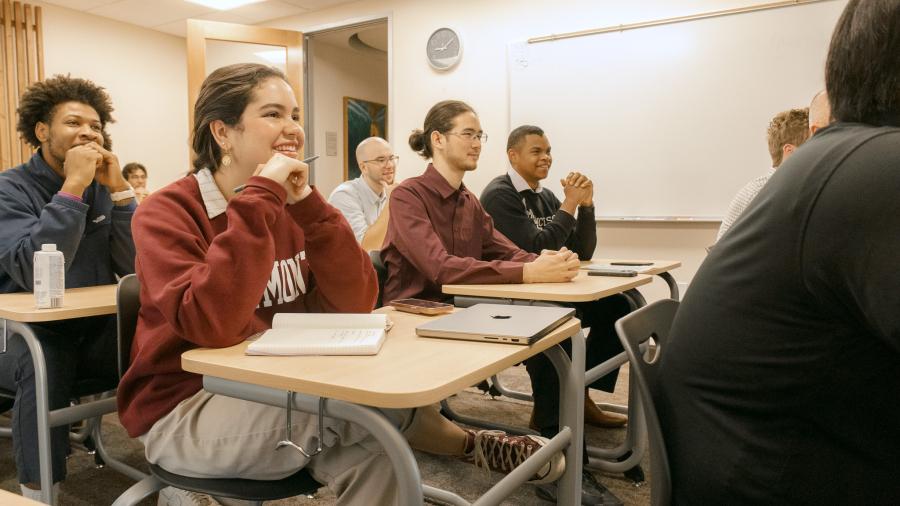CATLab Blog Asking the Right Questions About AI

In this blog, CATLab Creative Team member Rosario Montane highlights how we can use curiosity to explore how ethics and AI interact.
This summer, I had the pleasure of presenting at the Impact Conference 2024. I’m not a computer science person, but this summer I got to explore my curiosity and wrestled with what AI means for us all through my work as CATLab’s magazine writer.
Though CATLab’s AI projects bring practical and impactful solutions, there are larger ethical issues with AI technology. I focused on three critical questions about AI we must ask ourselves to protect our ethical values and encourage trust in the technology.
Can AI be truly creative?
On one hand, AI’s content efficiently imitates human creativity, saving time and money. On the other hand, does AI generate anything new or just send us back what we’ve trained it to? AI excels at telling us what’s normal, because it works by identifying patterns in historical data. However, it lacks originality and internal motivation, which are essential when creating new content and envisioning the future. We must protect the value of human creativity. If you agree AI can’t be creative, what would it take for it to be truly creative? This is a question to ponder.
How can we be confident in our use of AI?
A human lets you know if they’re unsure of an answer through nonverbals cues like tone, facial expression, etc. AI, however, answers with unwarranted confidence even though it often “hallucinates.” Should we expect AI to be right all the time? Probably not. Yet, it should indicate its certainty level to prevent misinformation and encourage trust. Meanwhile, we must be conscious that AI is not perfect.
Should we use AI to shortcut essential human experiences?
Intellectual work and agency are two essential human experiences. Think about what you’re most proud of professionally: a project, a composition, a student program. You had to work for years to acquire expertise and experience to get there. And in that work, you became someone different. You earned the right to call yourself a writer, a technologist, or a professor because exercising your own intellectual work is transformational. If you had relied on AI, authenticity would have been lost because you hadn’t done the work.
Because you did the work and earned your spot, you also earned the privilege and responsibility of agency to impact other people’s lives. We should not relinquish that to a computer. We must use technologies like AI to enhance human decision-making, not replace it.
The depth of human connection goes beyond words or replicated patterns. God gave us minds capable of inventing incredible technologies like AI, but we must continue to work, create, and constantly evolve. As we go deeper into a world with AI in these coming years, we must keep questioning the ethical implications of new technologies to preserve our values and understand our place in the world.